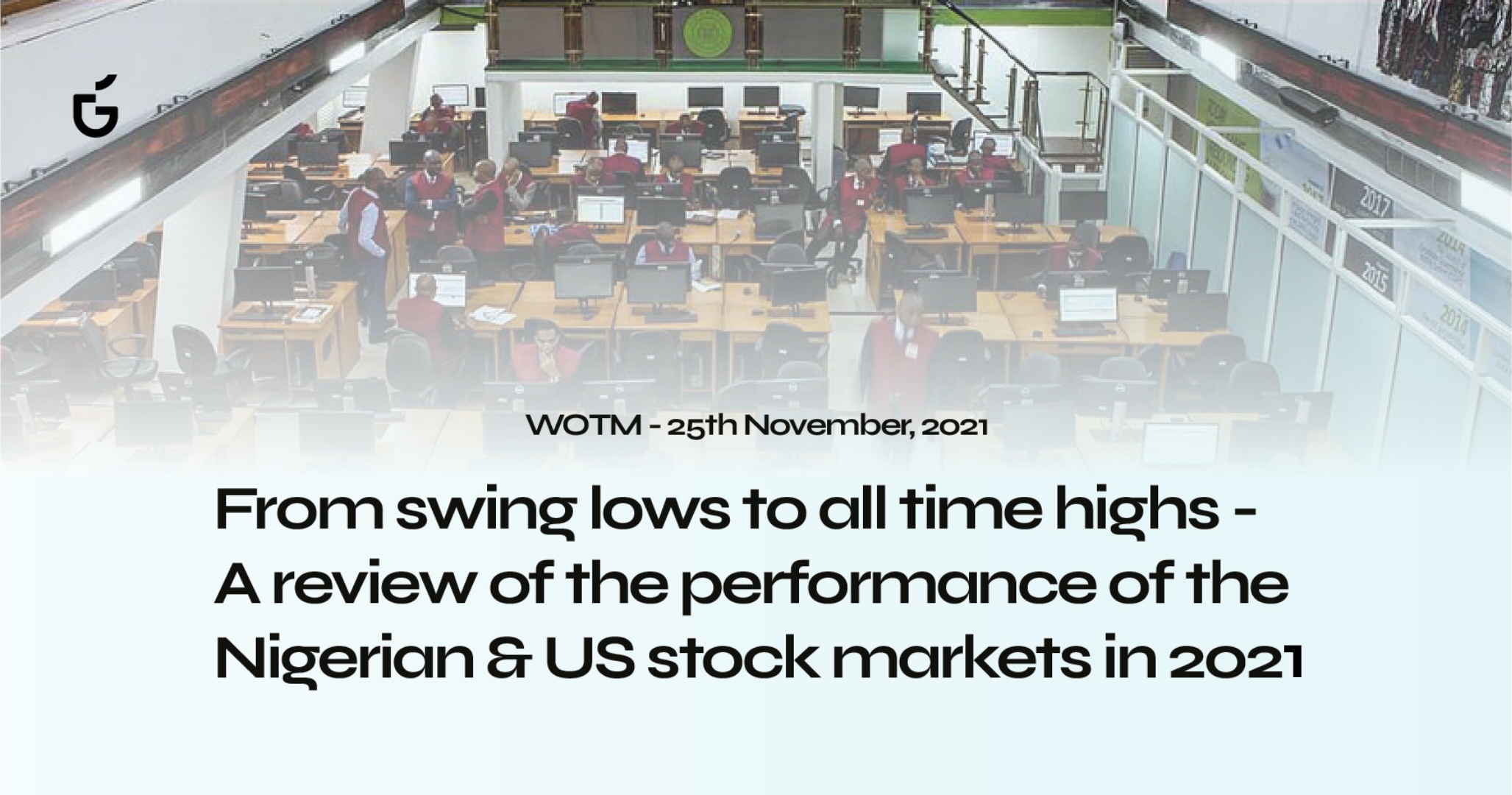 Africa
AfricaUnderstanding how companies are valued – A look into the MainOne acquisition
15 December, 2021
14 January, 2021 | 4 MINS READ
2020 was an intense and dramatic year for the global economy. Combating Coronavirus through lockdowns affected every government, business and household across the globe.
Covid-19 vaccines debuted in the United States by December 2020, worldwide access to the vaccines could put an end to the pandemic but distribution remains a complex feat, however, the uncertainty of the vaccine’s effectiveness remains very high.
We are learning to manage life with the virus at play but investors need to keep a close watch on fiscal and monetary policies implemented by Central Banks in order to arrive at reasonable investment decisions.
Generally, the recovery might be derailed by inadequate Central Bank policies to override the aftermath of the worldwide global shutdown in 2020.
We saw the following factors play a big role in economies across the world surviving 2020, therefore how these forces play out in 2021 is likely to affect the global economic recovery and investor portfolio returns in today’s environment.
Last year, the nationwide lockdown imposed by the Federal Government of Nigeria meant that economic activities were shut down and consumer spending shifted from luxury to more essential goods and services.
Nigerians travelled less within and outside the country for months, just as other citizens across the world, therefore the transportation sector took a massive blow. Demand for crude oil dropped to dangerous lows but supply remained in excess significantly pushing oil prices in a downward spiral.
In sustaining the strength of the economy, the Central Bank of Nigeria (CBN) announced relief packages and implemented liquidity injections that were targeted at sectors negatively impacted by the economy. The monetary policy rate was reduced to 11.5% despite the inflation surge, for the reason that inflation was driven by structural, not monetary factors.
What helped Nigeria recover from the economic recession in 2016 were the monetary policies that addressed inflationary pressures through the increase in the MPR from 12% – 14% in addition to the I & E window which was introduced to improve availability of foreign exchange in Nigeria.
The outcomes of the following may boost or derail Nigeria’s economic recovery in 2021:
To invest in unprecedented times like this, you need a plan. You need a plan to take positions that shield you against market fluctuations while taking advantage of opportunities and finding sustainable returns.
A report released by the National Bureau of Statistics reveals that 13 sectors contracted while 6 sectors recorded an expansion in 2020. Some of the sectors that expanded include Agriculture, Financial services, Utilities, Telecoms and Coal Mining. Telecommunications was the best performing sector in 2020, which doesn’t come as a surprise due to the massive dependence on data connectivity and online transactions due to less physical contacts.
In contrast to the sectors that expanded, Road, Air, Rail and pipeline transports, accommodation and food services, as well as construction services contracted by above 30% each.
Based on the above, the asset classes (traditional and alternative) we are keeping in our portfolios in 2021 include:
Stock market rallies will remain the order of the day if interest rates stay low, this means that we expect stocks to continue to outperform fixed income and cash in 2021.
Euro-bonds will remain on our watchlist as dollar -denominated fixed income opportunities still remain an option to balance out the market and currency volatility.
Real estate remains a favourite as we focus on helping the members of our community get access to flexible and affordable payment plans for real estate in good locations.
We consider micro-credit debt notes a great way to contribute to enabling access to liquidity for the mass market not served by the large financial institutions and we will continue to work with our partners to make it happen. Agriculture projects remain favourite as well as they provide ROI higher than inflation rates.
Investing in a small business is a long term quest. Our newly formed venture capital club is focused on educating those who are ready to take on this asset class.
In a recession, you need to ensure to ensure that your portfolio comprises investments that enhance your cash flow, protect your capital and help you beat the double digit inflation rate:
Finally, you must keep emergency/safety funds aside. Stack up enough in your fund that can cover your expenses for at least 3-6 months as we watch how countries control the pandemic and vaccine roll-out across the world.
 Africa
Africa15 December, 2021
 Africa
Africa09 December, 2021
Join the biggest
investment club in Nigeria.